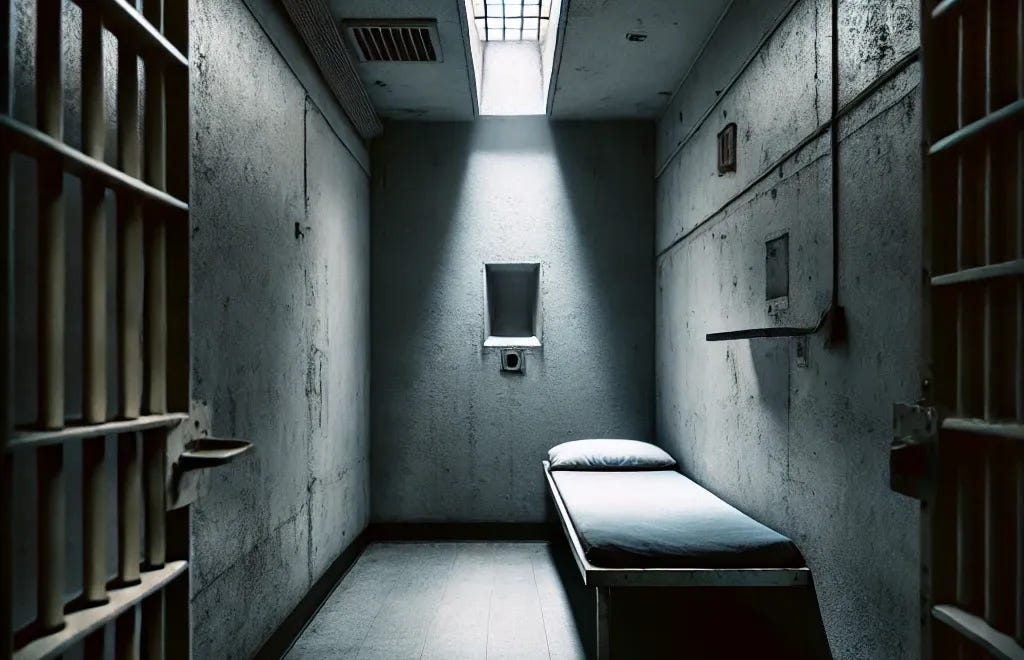In what advocates call a humanitarian crisis, prisoners at Virginia’s Red Onion State Prison resorted to self-immolation to escape conditions described as intolerable, inhumane, and racially abusive.
At least two men, and possibly as many as 12, took this extreme step in recent months, raising urgent questions about the prison system’s treatment of incarcerated individuals.
Among those who set themselves ablaze is Ekong Eshiet, 28-year-old and incarcerated at Red Onion since June 2024. Eshiet sustained severe burns and remains in solitary confinement. Speaking to Prison Riot Radio, Eshiet described the unbearable conditions that led to his actions:
“I’m trying to get off of here. I’m doing my best, I’m going about this the right way. But if I have to, I don’t mind setting myself on fire again, and this time I’ll set my whole body on fire. Before I have to stay up here and do the rest of my time up here, I would rather die.”
Eshiet’s mother, Marsha Pritchard, detailed relentless abuses against her son, including racial slurs, spitting in his food, and the desecration of his Quran. Following his self-immolation, Pritchard alleges guards exacerbated Eshiet’s suffering by rubbing pepper spray into his burn wounds.
“They call him ‘monkey,’” Eshiet’s mother says, “call him ‘n****r,’ and twist his name, ‘Eshiet,’ into ‘eat sh-t.’”
Eshiet’s experience mirrors that of others at red onion. In August, another prisoner, Demetrius Wallace, set fire to his leg to force a transfer. Wallace, who was hospitalized for 14 days, told The Virginia Defender that he acted out of desperation after being subjected to assault, harassment, and retaliation for filing a lawsuit against the prison.
Opened in 1998, Red Onion is a super-maximum-security facility in a remote corner of Virginia. Initially intended to house the “worst of the worst,“ it quickly gained a reputation for extreme repression and cruelty.
Reports from Human Rights Watch, Amnesty International, and a 2016 HBO documentary, Solitary: Inside Red Onion State Prison, document systemic abuse, the overuse of solitary confinement, and racial discrimination.
Kevin “Rashid” Johnson, a prominent activist incarcerated at red onion, was pivotal in exposing the conditions there. Johnson, who endured his own hunger strikes and medical neglect, reported that prisoners like Eshiet and Wallace resort to self immolation out of desperation, not protest.
“These were not protests,“ Johnson wrote. “These were acts of desperation, hoping to get out of an insufferable situation.”
Red Onion’s warden, David Anderson, denied these incidents when contacted by The Virginia Defender, stating, “No, it’s not true,” before declining further comment. Despite the denial, reports from advocates, family members, and prisoners themselves paint a different picture.
Advocacy groups, including The Virginia Defender and Interfaith Action for Human Rights, demand an independent investigation into the conditions at Red Onion. They also call for public accountability from Virginia officials, including Governor Glenn Youngkin, and the Department of Corrections Director, Chadwick Dotson.
“This cannot be ignored,” said Natasha White of Interfaith Action for Human Rights. “These are cries for help from individuals pushed to the brink in a system designed to rehabilitate but instead breeds despair.”
Advocates suggest several actions to support the prisoners:
Contact Red Onion State Prison: demand an independent investigation into these incidents. Call Warden David Anderson at (276) 796-7510.
Contact legislators: write or call Virginia’s lawmakers to demand transparency and accountability for red onion.
Call Governor Glenn Youngkin at (804) 786-2211 (or) email the governor at glenn.youngkin@governor.virginia.gov.
Call the Virginia Department of Corrections Director, Chadwick Dotson at (804) 674-3000 (or) email the director at chadwick.dotson@vadoc.virginia.gov.
When calling, you can say:
“I am deeply concerned about reports of self-immolation and inhumane conditions at Red Onion State Prison. I demand an independent investigation and immediate reforms to ensure humane treatment of all incarcerated individuals.”
The tragedies at red onion state prison underscore the urgent need for prison reform accountability. The desperation of those incarcerated at the facility is a stark reminder of the inhumanity that festers in systems designed without oversight or compassion. Public awareness and action are critical to address these systemic issues and ensure the voices of those suffering are not silenced.




